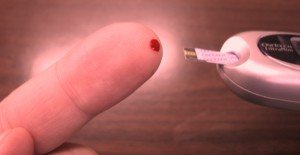
How high must that number on the glucose meter be in order for it to warrant a trip to the emergency room STAT?
Should you zip to the emergency room if your blood sugar is over 300 no matter how you feel?
First of all, if you’re fearing that your body is in urgent need of medical care due to a very high blood sugar, don’t drive; have someone drive you.
Blood Sugar Numbers and Emergency Room Visits
“It’s not a number; it’s how you feel,” says Susan L. Besser, MD, with Mercy Medical Center, Baltimore, and Diplomate American Board of Obesity Medicine and board certified by the American Board of Family Medicine.
“Some diabetics walk around with a sugar in the 400’s and really don’t have many symptoms, whereas others go into a coma at a sugar in the upper 200’s,” continues Dr. Besser.
“Don’t just look at the number. Look at the person. And if you aren’t sure, call your PCP first. He or she knows you best and can advise you what to do.”
Nevertheless, if you learn that your blood sugar is in the 400’s simply because it was time to take a scheduled glucose reading, but you feel perfectly fine, it’s not necessary to go to the emergency room.
On the other hand, here are serious symptoms of abnormally high glucose:
• Nausea, vomiting
• Shortness of breath
• Severe fatigue
• Stomach pain
• Flushed skin
• Fruity smelling breath
• Impaired mentation
• Impaired level of consciousness
Less Serious Symptoms of High Blood Sugar
• Excessive thirst
• Excessive urination
• Fatigue
• Rapid heartbeat
• Dry mouth
• Itchy skin
Be tuned in to how your body feels. Pay attention to any new-onset symptoms. Learn to recognize them.
Keep in mind that the symptoms of high blood sugar (hyperglycemia), such as itchy skin, rapid heartbeat, fatigue and stomach pain, can have other causes – some benign and some quite serious.
Monitor your glucose according to your doctor’s instructions, but don’t obsess about it.
 Dr. Besser provides comprehensive family care, treating common and acute primary conditions such as diabetes and hypertension. Her ongoing approach allows her the opportunity to provide accurate and critical diagnoses of more complex conditions and disorders.
Dr. Besser provides comprehensive family care, treating common and acute primary conditions such as diabetes and hypertension. Her ongoing approach allows her the opportunity to provide accurate and critical diagnoses of more complex conditions and disorders.
 Lorra Garrick has been covering medical, fitness and cybersecurity topics for many years, having written thousands of articles for print magazines and websites, including as a ghostwriter. She is also a former ACE-certified personal trainer.
Lorra Garrick has been covering medical, fitness and cybersecurity topics for many years, having written thousands of articles for print magazines and websites, including as a ghostwriter. She is also a former ACE-certified personal trainer.




































